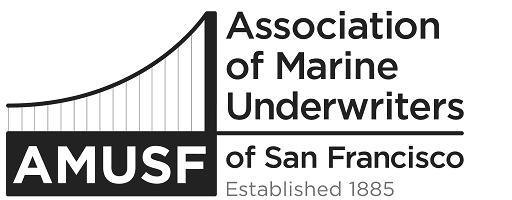E
/Early Neutral Evaluation -See "Alternative Dispute Resolution."
Edge Protector
An angle piece fitted over the edge of boxes, crates, bundles, and other packages to prevent the pressure from straps or bands from cutting into the package.
EIR -See "Equipment Interchange Receipt."
Ejusdem Generis (of the same kind, class or nature) - See "Omnibus Clause."
Embargo
A governmental order restricting the hauling or movement of a particular commodity or commodities to or from a particular country.
Endorsement
- A legal signature usually placed on the reverse of a check or draft; signifies transfer of financial rights from the holder to another party.
- A legal signature placed on a negotiable bill of lading to transfer ownership of the bill of lading (and hence the cargo referred to in it) to another party.
- A legal signature placed on a negotiable certificate of insurance to transfer rights to another party.
- An amendment to an insurance policy.
Entry Documents
Customs papers required to clear an import shipment for admission into the general commerce of a country.
Equipment
Articles necessary for the safety, maintenance or navigation of the vessel on its intended voyage, which are not part of the vessel’s hull or machinery and which are not the personal property of the crew; e.g. anchors, cables, mooring lines, lifeboats, lifesaving apparatus, signal lights, radio installation, navigational instruments, cooking utensils, furniture, provisions and stores.
Equipment Interchange Receipt (EIR)
A receipt issued when a container and chassis enter or leave a port's terminal area by truck; usually noting the date and time, whether the container is full or empty, the number of any seals affixed to the container, and the condition of the container.
Estuary
The mouth of a river where it widens and runs into the sea. The fresh water becomes brackish as it meets the ebb and flow of the salty tide.
ETA (Estimated Time of Arrival)
ETD (Estimated Time of Departure)
Ethylene
A gas produced by many fruits and vegetables that accelerates the ripening and aging processes. See "Controlled Atmosphere".
EX (Point of Origin)
The point where a shipment begins transit, e.g. "Ex Factory" or "Ex Mine" or "Ex Warehouse." See "Cargo Terms of Sale" Appendix G.
Exception
A notation on a shipping document (Bill of Lading or Delivery Receipt) qualifying the condition of the merchandise to indicate damage, suspected damage, or shortage.
Some risks (commonly liability and some types of property) are written on a layered basis, in which one or more layers of excess policies are placed on top of the primary policy; stacked up much like layers of a cake to provide higher limits of coverage. Losses are paid by the primary layer first, and then, one by one, by as many excess layers as are necessary to pay the entire loss or until all of the excess layers are exhausted.
Ex Gratia Payment
An insurance company’s payment of a claim that is not clearly covered by the policy, as a commercial expedient to maintain goodwill between Assured and the insurance company.
Exhibition Cover
Insurance coverage for merchandise in transit to and while on exhibit (usually at a trade show) and the return shipment (unless the merchandise is sold) to point of origin. A cargo policy normally only covers while merchandise is in transit until arrival at destination. Only the marine policy can extend coverage on shore, not the war policy.
Export
Shipment of goods to a foreign country.
Export License
A government document permitting the "Licensee" to engage in the export of designated goods to certain destinations.

